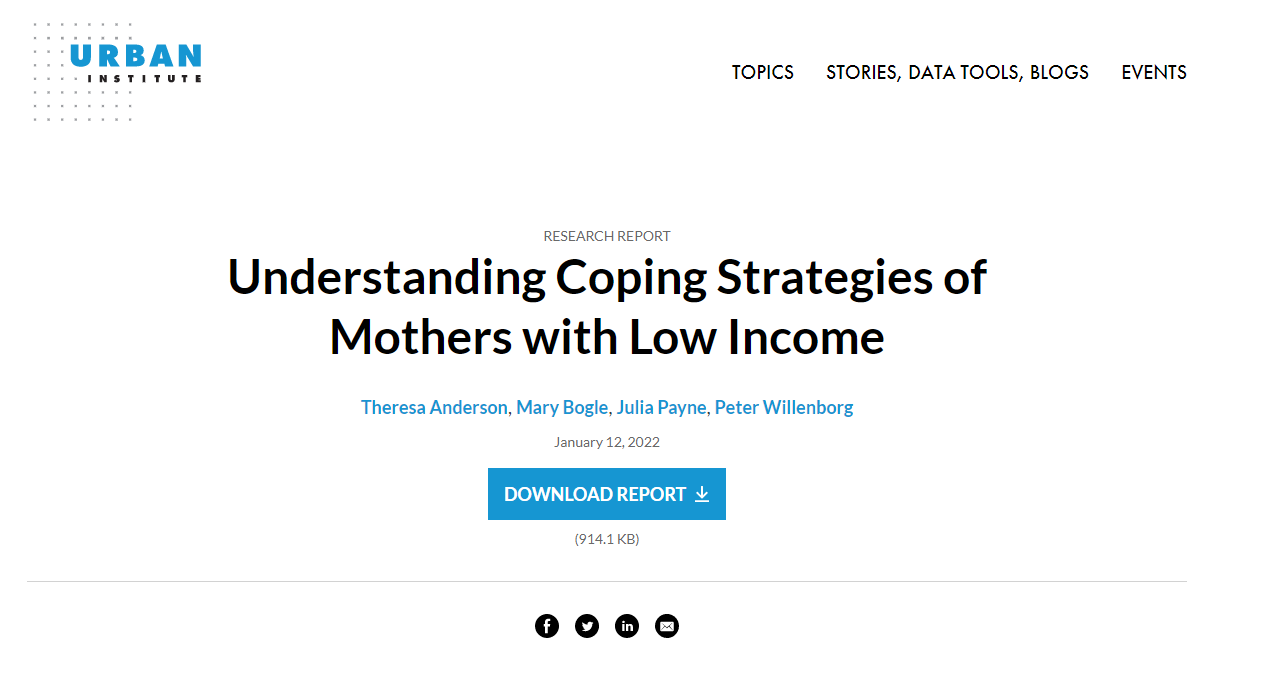This Urban Institute released a report describing how mothers of young children coped during the pandemic, focusing on how those with few economic resources cared for their children, maintained economic stability, and ensured their own wellbeing. The exploratory study interviewed 20 mothers and found mothers prioritized their children’s needs first and utilized a creative patchwork of resources to meet those needs. These resources included personal networks of family and friends, community-based organizations, and government programs, although formal food, health, child care, and housing benefits were unstable, difficult to access, and insufficient. The authors suggest that their findings underscore the need for all-encompassing services rather than siloed programs that only address one critical need. Similarly, they advocate for more flexible programs to enable mothers with untraditional or crowded schedules to access services. The authors also highlight the need for broadened mental health service access, especially in marginalized communities.

